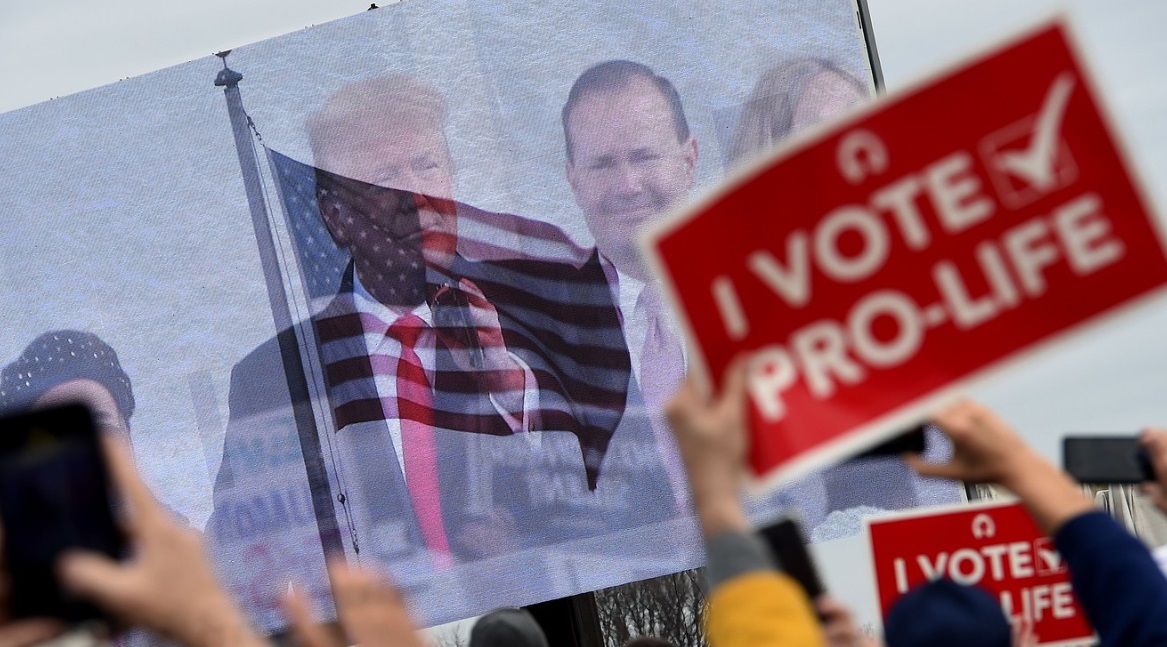It will take EVERYONE standing up for the values we believe in to see justice in our health system and to make sure cuts don’t happen. Health care is a basic human need and right – if you are pro-life, that means you are pro-health-care-for-all!
WASHINGTON — Budget negotiators have not found a way to avert a government default on federal debt obligations, but with their ideas to cut Medicare and Medicaid they have managed to provoke opposition from almost every major group that represents beneficiaries and health care providers.
The latest provocation was a list of proposed savings presented at the White House this week by the House majority leader, Representative Eric Cantor, Republican of Virginia.
Mr. Cantor said Tuesday that the ideas had all been seriously discussed, with varying levels of Democratic support, in seven weeks of negotiations led by Vice President Joseph R. Biden Jr.
But with House Republicans adamantly opposed to new taxes, Democrats said they would not accept cuts in Medicare that reduced benefits.
Mr. Cantor’s list included 27 proposals that he said would save up to $353 billion over 10 years, in the context of a budget deal that could save anywhere from $2 trillion to $4 trillion over the same period.
Items on the list touched off howls of protest from lobbyists and Democratic lawmakers who saw details for the first time on Tuesday.
Some of the proposals would hit Medicare patients in the pocketbook, charging co-payments for home health care and clinical laboratory services like blood tests. One proposal would increase premiums and co-payments for beneficiaries with relatively high incomes. Another would require millions of recipients to pay more of the costs now covered by private insurance policies that supplement Medicare.
The Congressional Budget Office says the proposal could save Medicare up to $53 billion over 10 years, mainly by curbing the use of health care by people with supplemental coverage known as Medigap policies. Studies show that such policyholders use about 25 percent more services than Medicare patients who have no supplemental coverage, the budget office said.
But Medigap policies are popular with older Americans, who like the financial security they get from the extra insurance.
“The Medigap proposal would shift costs onto Medicare beneficiaries,” said Howard J. Bedlin, vice president of the National Council on Aging, a service and advocacy group. “Our fear is that many would go without the care they need and end up in a hospital emergency room, which costs Medicare more than proper treatment would have cost.”
Likewise, Mr. Bedlin said, the proposed co-payments for home health care would “significantly increase out-of-pocket costs for many low-income widows with multiple chronic conditions.”
When such co-payments were seriously considered in the past, Democrats wheeled some of the widows into the Capitol to denounce the idea.
Mr. Cantor’s list includes $100 billion in savings from Medicaid over 10 years — the same amount sought in a White House proposal that has caused consternation among some officials at the Department of Health and Human Services.
Laboratories were surprised to learn Tuesday of the proposal to start charging Medicare beneficiaries a $1 co-payment for each lab test. Lab tests and home health visits are now exempt from such cost-sharing.
Alan B. Mertz, president of the American Clinical Laboratory Association, a trade group, said that collecting the co-payments from beneficiaries would be “a huge administrative hassle.”
The average lab test costs $12 or $13, Mr. Mertz said, and labs typically “do not have a face-to-face relationship with patients.” In many cases, he said, “we will not be able to collect the money, or the cost of collecting it will be more than the amount of the co-payment.”
Representative Paul D. Ryan, Republican of Wisconsin and chairman of the House Budget Committee, said the din of criticism was disappointing.
“These are not big Medicare savers,” Mr. Ryan said in an interview. “They do not save a lot of money in the whole scheme of things. If we come to a political paralysis over a few hundred billion dollars, the credit markets will really start turning on us.”
The Obama administration said Tuesday that instead of cutting benefits or increasing co-payments, Congress should increase the power of an independent agency, created by the new health care law, to make sweeping cuts in the growth of Medicare spending.
At a hearing of the House Budget Committee, Kathleen Sebelius, the secretary of health and human services, said the new agency, the Independent Payment Advisory Board, would be a backstop to ensure a sharp reduction in the growth of Medicare spending per beneficiary.
Mr. Ryan said the 15-member board was “just a mechanism to take power out of the hands of politicians so they can absolve themselves of responsibility for the inevitable price controlling and rationing that is to come in Medicare.” Such rationing, he said, “is not necessary if you do fundamental Medicare reform.”
































































I am continually invstigating online for tips that can aid me. Thank you!
I think this web site contains some rattling great information for everyone :D. “Years wrinkle the skin, but to give up enthusiasm wrinkles the soul.” by Samuel Ullman.
As soon as I detected this internet site I went on reddit to share some of the love with them.
You have brought up a very wonderful details , appreciate it for the post. “The great object is, that every man be armed. … Every one who is able may have a gun.” by Patrick Henry.
Rattling good info can be found on website.
Very interesting points you have remarked, appreciate it for putting up.
Keep up the fantastic work, I read few content on this web site and I think that your blog is really interesting and holds lots of great info.
I really enjoy examining on this website, it has got fantastic blog posts. “A short saying oft contains much wisdom.” by Sophocles.
I love your writing style really enjoying this internet site. “My best friend is the one who brings out the best in me.” by Henry Ford.
I like this web site very much so much superb info . “The need to write comes from the need to make sense of one’s life and discover one’s usefulness.” by John Cheever.
Some really superb info , Gladiolus I noticed this. “Now hatred is by far the longest pleasure men love in haste but they detest at leisure.” by George Gordon Byron.
Excellent read, I just passed this onto a colleague who was doing a little research on that. And he actually bought me lunch since I found it for him smile So let me rephrase that: Thank you for lunch! “We strain to renew our capacity for wonder, to shock ourselves into astonishment once again.” by Shana Alexander.
I like this site its a master peace ! Glad I noticed this on google. “Don’t spend time beating on a wall, hoping to transform it into a door.” by Dr. Laura Schlessinger.
It’s rare for me to discover something on the net that’s as entertaining and intriguing as what you’ve got here. Your page is lovely, your graphics are outstanding, and what’s more, you use reference that are relevant to what you are saying. You are definitely one in a million, keep up the good work!
I have recently started a site, the information you provide on this website has helped me greatly. Thank you for all of your time & work.
Really nice style and good subject matter, hardly anything else we need :D.
I’ve recently started a website, the info you offer on this website has helped me tremendously. Thank you for all of your time & work.
Great post, I think website owners should learn a lot from this web site its really user genial. So much superb info on here :D.
Absolutely composed subject material, regards for selective information. “No human thing is of serious importance.” by Plato.
Yay google is my queen assisted me to find this great website ! . “Every man dies. Not every man lives.” by Tim Robbins.
It’s rare for me to find something on the cyberspace that’s as entertaining and intriguing as what you have got here. Your page is sweet, your graphics are outstanding, and what’s more, you use reference that are relevant to what you’re talking about. You’re certainly one in a million, keep up the good work!
I like what you guys are up also. Such intelligent work and reporting! Carry on the excellent works guys I have incorporated you guys to my blogroll. I think it’ll improve the value of my site :). “He is happiest, be he king or peasant, who finds peace in his home.” by Johann von Goethe.
Great post, I believe people should learn a lot from this site its rattling user genial. So much superb information on here :D.
I think this site contains some very good information for everyone :D. “Time–our youth–it never really goes, does it It is all held in our minds.” by Helen Hoover Santmyer.
Hey There. I discovered your weblog the use of msn. This is a very well written article. I’ll be sure to bookmark it and come back to read more of your useful information. Thanks for the post. I’ll certainly comeback.
Keep up the good work , I read few content on this web site and I conceive that your web site is rattling interesting and has got sets of wonderful info .
Wohh exactly what I was looking for, regards for putting up.
Whoa! This blog looks just like my old one! It’s on a completely different subject but it has pretty much the same page layout and design. Great choice of colors!
Thanks for all your efforts that you have put in this. very interesting info . “Never trust the advice of a man in difficulties.” by Aesop.
OMG! It’s like you read my mind! You seem to know so much about this, just like you wrote the book in it or something. I think that you can do with some images to drive the message home a bit, besides that, this is wonderful blog post. A great read. I’ll definitely be back.
Appreciate it for helping out, superb info. “Whoever obeys the gods, to him they particularly listen.” by Homer.
I would like to thnkx for the efforts you have put in writing this web site. I’m hoping the same high-grade web site post from you in the upcoming also. Actually your creative writing skills has inspired me to get my own site now. Really the blogging is spreading its wings rapidly. Your write up is a great example of it.
I like this post, enjoyed this one thank you for putting up. “We seldom attribute common sense except to those who agree with us.” by La Rochefoucauld.
Enjoyed reading this, very good stuff, thanks . “Shared joys make a friend, not shared sufferings.” by Friedrich Wilhelm Nietzsche.
We’re a group of volunteers and starting a brand new scheme in our community. Your web site offered us with useful info to paintings on. You have done a formidable task and our whole neighborhood might be thankful to you.
I truly appreciate this post. I’ve been looking all over for this! Thank goodness I found it on Bing. You have made my day! Thanks again!
Good post. I was checking continuously to this website and I am so impressed! Extremely helpful info, especially the 6th paragraphs. I really need such knowledge. I used to be seeking this particular information for many days. Thankx and good luck.
Very interesting points you have mentioned , thankyou for posting . “Success is a journey, not a destination. The doing is often more important than the outcome.” by Arthur Ashe.
I truly enjoy reading on this website , it has superb blog posts. “Dream no small dreams. They have no power to stir the souls of men.” by Victor Hugo.
But wanna input that you have a very decent internet site , I the style and design it actually stands out.
As soon as I found this site I went on reddit to share some of the love with them. “The result justifies the deed.” by Ovid.
Hello, I had been wandering around online and I saw your blog from another site. I read many of your site content and thought they can be well written. Thanks, Ill see your page again soon.
Good – I should certainly pronounce, impressed with your site. I had no trouble navigating through all the tabs and related info ended up being truly easy to do to access. I recently found what I hoped for before you know it in the least. Quite unusual. Is likely to appreciate it for those who add forums or something, website theme . a tones way for your customer to communicate. Nice task.
I like this web blog very much, Its a rattling nice office to read and incur information. “What is a committee A group of the unwilling, picked from the unfit, to do the unnecessary.” by Richard Harkness.
I really enjoy looking through on this internet site , it contains good content . “Literature is the orchestration of platitudes.” by Thornton.
I really appreciate this post. I have been looking all over for this! Thank goodness I found it on Bing. You have made my day! Thanks again!
Very interesting info !Perfect just what I was searching for! “The only limit to our realization of tomorrow will be our doubts about reality.” by Franklin Delano Roosevelt.
thank you for all your efforts that you have put in this. Very interesting information. “The longer I live the more beautiful life becomes.” by Frank Lloyd Wright.
Its excellent as your other content : D, regards for posting . “The art of love … is largely the art of persistence.” by Albert Ellis.
But a smiling visitant here to share the love (:, btw great style . “The worst-tempered people I’ve ever met were the people who knew they were wrong.” by Wilson Mizner.
Kudos with the great article. I’m glad We’ve taken time to educate yourself this.
This kind of sort of article will certainly hit to several followers. A great article and valuable because of its information. Many thanks for sharing it!
Rattling nice style and wonderful subject material , nothing at all else we require : D.
I am not very excellent with English but I get hold this really easygoing to interpret.
I have been previously reading the posts, and that i definitely concur as to what Tom said.
I got what you intend, thankyou for posting .Woh I am lucky to find this website through google. “The outcome of the war is in our hands the outcome of words is in the council.” by Homer.
Superb website…
[…]always a big fan of linking to bloggers that I love but don’t get a lot of link love from[…]……
Blogs ou should be reading…
[…]Here is a Great Blog You Might Find Interesting that we Encourage You[…]……
Cool sites…
[…]we came across a cool site that you might enjoy. Take a look if you want[…]…
This Week in Automobile News…
[…]here are some links to sites worth going to[…]…
SEO Company and Web Design…
[…]Worthwhile web sites we visit[…]…
Recent Blogroll Additions……
[…]usually posts some very interesting stuff like this. If you’re new to this site[…]……
Sites we Like……
[…] Every once in a while we choose blogs that we read. Listed below are the latest sites that we choose […]……
Auto Warranty Reviews…
[…]pages worth visiting[…]…
hard drive erasure…
[…]Above are some links to web sites that we link to because we think they are worth visiting[…]…
Check this out…
[…] that is the end of this article. Here you’ll find some sites that we think you’ll appreciate, just click the links over[…]……
Read was interesting, stay in touch……
[…]please visit the sites we follow, including this one, as it represents our picks from the web[…]……
You should check this out…
[…] Wonderful story, reckoned we could combine a few unrelated data, nevertheless really worth taking a look, whoa did one learn about Mid East has got more problerms as well […]……
Websites you should visit…
[…]below you’ll find the link to some sites that we think you should visit[…]……
Read was interesting, stay in touch……
[…]please visit the sites we follow, including this one, as it represents our picks from the web[…]……
Related……
[…]just beneath, are numerous totally not related sites to ours, however, they are surely worth going over[…]……
Online Article……
[…]The information mentioned in the article are some of the best available […]……
Superb website…
[…]always a big fan of linking to bloggers that I love but don’t get a lot of link love from[…]……
Online Article……
[…]The information mentioned in the article are some of the best available […]……
You should check this out…
[…] Wonderful story, reckoned we could combine a few unrelated data, nevertheless really worth taking a look, whoa did one learn about Mid East has got more problerms as well […]……
Sites we Like……
[…] Every once in a while we choose blogs that we read. Listed below are the latest sites that we choose […]……
Check this out…
[…] that is the end of this article. Here you’ll find some sites that we think you’ll appreciate, just click the links over[…]……
Sources…
[…]check below, are some totally unrelated websites to ours, however, they are most trustworthy sources that we use[…]……
Websites we think you should visit…
[…]although websites we backlink to below are considerably not related to ours, we feel they are actually worth a go through, so have a look[…]……
Recent Blogroll Additions……
[…]usually posts some very interesting stuff like this. If you’re new to this site[…]……
Check this out…
[…] that is the end of this article. Here you’ll find some sites that we think you’ll appreciate, just click the links over[…]……
Read was interesting, stay in touch……
[…]please visit the sites we follow, including this one, as it represents our picks from the web[…]……
Superb website…
[…]always a big fan of linking to bloggers that I love but don’t get a lot of link love from[…]……
Sources…
[…]check below, are some totally unrelated websites to ours, however, they are most trustworthy sources that we use[…]……
Online Article……
[…]The information mentioned in the article are some of the best available […]……
Awesome website…
[…]the time to read or visit the content or sites we have linked to below the[…]……
You should check this out…
[…] Wonderful story, reckoned we could combine a few unrelated data, nevertheless really worth taking a look, whoa did one learn about Mid East has got more problerms as well […]……
it asset disposition…
[…]we like to link to other pages on the web, even if they aren’t related to us[…]…
Websites worth visiting…
[…]here are some links to sites that we link to because we think they are worth visiting[…]……
Links…
[…]Sites of interest we have a link to[…]……
Sites we Like……
[…] Every once in a while we choose blogs that we read. Listed below are the latest sites that we choose […]……
Related……
[…]just beneath, are numerous totally not related sites to ours, however, they are surely worth going over[…]……
Great website…
[…]we like to honor many other internet sites on the web, even if they aren’t linked to us, by linking to them. Under are some webpages worth checking out[…]……
Sources…
[…]check below, are some totally unrelated websites to ours, however, they are most trustworthy sources that we use[…]……
Blogs ou should be reading…
[…]Here is a Great Blog You Might Find Interesting that we Encourage You[…]……
Recent Blogroll Additions……
[…]usually posts some very interesting stuff like this. If you’re new to this site[…]……
Websites you should visit…
[…]below you’ll find the link to some sites that we think you should visit[…]……
Links…
[…]Sites of interest we have a link to[…]……
Recent Blogroll Additions……
[…]usually posts some very interesting stuff like this. If you’re new to this site[…]……
Websites you should visit…
[…]below you’ll find the link to some sites that we think you should visit[…]……
FoxTec Online PC Parts…
[…]here are some links to pages that we link to because we think they are worth visiting[…]…
PotSpot 411…
[…]Cool sites we visit[…]…
Online Article……
[…]The information mentioned in the article is some of the best available […]……
Superb website…
[…]always a big fan of linking to bloggers that I love but don’t get a lot of link love from[…]……
Websites worth visiting…
[…]here are some links to sites that we link to because we think they are worth visiting[…]……
You should check this out…
[…] Wonderful story, reckoned we could combine a few unrelated data, nevertheless really worth taking a look, whoa did one learn about Mid East has got more problerms as well […]……
Check this out…
[…] that is the end of this article. Here you’ll find some sites that we think you’ll appreciate, just click the links over[…]……
Websites we think you should visit…
[…]although websites we backlink to below are considerably not related to ours, we feel they are actually worth a go through, so have a look[…]……
Sites we Like……
[…] Every once in a while we choose blogs that we read. Listed below are the latest sites that we choose […]……
Visitor recommendations…
[…]one of our visitors recently recommended the following website[…]……
Great website…
[…]we like to honor many other internet sites on the web, even if they aren’t linked to us, by linking to them. Under are some webpages worth checking out[…]……
Visitor recommendations…
[…]one of our visitors recently recommended the following website[…]……
Visitor recommendations…
[…]one of our visitors recently recommended the following website[…]……
Sites we Like……
[…] Every once in a while we choose blogs that we read. Listed below are the latest sites that we choose […]……
Check this out…
[…] that is the end of this article. Here you’ll find some sites that we think you’ll appreciate, just click the links over[…]……
Related……
[…]just beneath, are numerous totally not related sites to ours, however, they are surely worth going over[…]……
Great website…
[…]we like to honor many other internet sites on the web, even if they aren’t linked to us, by linking to them. Under are some webpages worth checking out[…]……
Recommeneded websites…
[…]Here are some of the sites we recommend for our visitors[…]……
Cool sites…
[…]we came across a cool site that you might enjoy. Take a look if you want[…]……
Links…
[…]Sites of interest we have a link to[…]……
Awesome website…
[…]the time to read or visit the content or sites we have linked to below the[…]……
Related……
[…]just beneath, are numerous totally not related sites to ours, however, they are surely worth going over[…]……
Visitor recommendations…
[…]one of our visitors recently recommended the following website[…]……
Visitor recommendations…
[…]one of our visitors recently recommended the following website[…]……
You should check this out…
[…] Wonderful story, reckoned we could combine a few unrelated data, nevertheless really worth taking a look, whoa did one learn about Mid East has got more problerms as well […]……
Cool sites…
[…]we came across a cool site that you might enjoy. Take a look if you want[…]……
Recommeneded websites…
[…]Here are some of the sites we recommend for our visitors[…]……
Related……
[…]just beneath, are numerous totally not related sites to ours, however, they are surely worth going over[…]……
Read was interesting, stay in touch……
[…]please visit the sites we follow, including this one, as it represents our picks from the web[…]……
Awesome website…
[…]the time to read or visit the content or sites we have linked to below the[…]……
Sources…
[…]check below, are some totally unrelated websites to ours, however, they are most trustworthy sources that we use[…]……
Visitor recommendations…
[…]one of our visitors recently recommended the following website[…]……
Sources…
[…]check below, are some totally unrelated websites to ours, however, they are most trustworthy sources that we use[…]……
Check this out…
[…] that is the end of this article. Here you’ll find some sites that we think you’ll appreciate, just click the links over[…]……
Links…
[…]Sites of interest we have a link to[…]……
Recommeneded websites…
[…]Here are some of the sites we recommend for our visitors[…]……
Recommeneded websites…
[…]Here are some of the sites we recommend for our visitors[…]……
Links…
[…]Sites of interest we have a link to[…]……
Websites worth visiting…
[…]here are some links to sites that we link to because we think they are worth visiting[…]……
Tumblr article…
I saw someone writing about this on Tumblr and it linked to…
Recent Blogroll Additions……
[…]usually posts some very interesting stuff like this. If you’re new to this site[…]……
Recent Blogroll Additions……
[…]usually posts some very interesting stuff like this. If you’re new to this site[…]……
Blogs ou should be reading…
[…]Here is a Great Blog You Might Find Interesting that we Encourage You[…]……
Visitor recommendations…
[…]one of our visitors recently recommended the following website[…]……
Recommeneded websites…
[…]Here are some of the sites we recommend for our visitors[…]……
Superb website…
[…]always a big fan of linking to bloggers that I love but don’t get a lot of link love from[…]……
Online Article……
[…]The information mentioned in the article are some of the best available […]……
Looking around…
While I was surfing today I noticed a great article concerning…
Read was interesting, stay in touch……
[…]please visit the sites we follow, including this one, as it represents our picks from the web[…]……
Awesome website…
[…]the time to read or visit the content or sites we have linked to below the[…]……
Cool sites…
[…]we came across a cool site that you might enjoy. Take a look if you want[…]……
Related……
[…]just beneath, are numerous totally not related sites to ours, however, they are surely worth going over[…]……
Cool sites…
[…]we came across a cool site that you might enjoy. Take a look if you want[…]……
Sources…
[…]check below, are some totally unrelated websites to ours, however, they are most trustworthy sources that we use[…]……
Read was interesting, stay in touch……
[…]please visit the sites we follow, including this one, as it represents our picks from the web[…]……
Cool sites…
[…]we came across a cool site that you might enjoy. Take a look if you want[…]……
Read was interesting, stay in touch……
[…]please visit the sites we follow, including this one, as it represents our picks from the web[…]……
Related……
[…]just beneath, are numerous totally not related sites to ours, however, they are surely worth going over[…]……
Related……
[…]just beneath, are numerous totally not related sites to ours, however, they are surely worth going over[…]……
Gems form the internet…
[…]very few websites that happen to be detailed below, from our point of view are undoubtedly well worth checking out[…]……
Read was interesting, stay in touch……
[…]please visit the sites we follow, including this one, as it represents our picks from the web[…]……
Check this out…
[…] that is the end of this article. Here you’ll find some sites that we think you’ll appreciate, just click the links over[…]……
Related……
[…]just beneath, are numerous totally not related sites to ours, however, they are surely worth going over[…]……
Recent Blogroll Additions……
[…]usually posts some very interesting stuff like this. If you’re new to this site[…]……
PotSpot 411…
[…]we like to connect to other places on the internet, even if they are not affiliated to us,Below are some web sites worth visiting[…]…
PotSpot 411…
[…]we like to connect to other web sites on the internet, even if they are not affiliated to us,Below are some websites worth checking out[…]…
Links…
[…]Sites of interest we have a link to[…]……
PotSpot 411…
[…]we like to connect to other websites on the web, even if they are not affiliated to us,Below are some sites worth visiting[…]…
FoxTec Online Parts for Computers…
[…]This is where you’ll see the links to some sites that we think you will like[…]…
Websites worth visiting…
[…]here are some links to sites that we link to because we think they are worth visiting[…]……
Links…
[…]Sites of interest we have a link to[…]……
Websites you should visit…
[…]below you’ll find the link to some sites that we think you should visit[…]……
Cool sites…
[…]we came across a cool site that you might enjoy. Take a look if you want[…]……
Awesome website…
[…]the time to read or visit the content or sites we have linked to below the[…]……
Blogs ou should be reading…
[…]Here is a Great Blog You Might Find Interesting that we Encourage You[…]……
Cool sites…
[…]we came across a cool site that you might enjoy. Take a look if you want[…]……
Check this out…
[…] that is the end of this article. Here you’ll find some sites that we think you’ll appreciate, just click the links over[…]……
Websites worth visiting…
[…]here are some links to sites that we link to because we think they are worth visiting[…]……
Blogs ou should be reading…
[…]Here is a Great Blog You Might Find Interesting that we Encourage You[…]……
Check this out…
[…] that is the end of this article. Here you’ll find some sites that we think you’ll appreciate, just click the links over[…]……
You should check this out…
[…] Wonderful story, reckoned we could combine a few unrelated data, nevertheless really worth taking a look, whoa did one learn about Mid East has got more problerms as well […]……